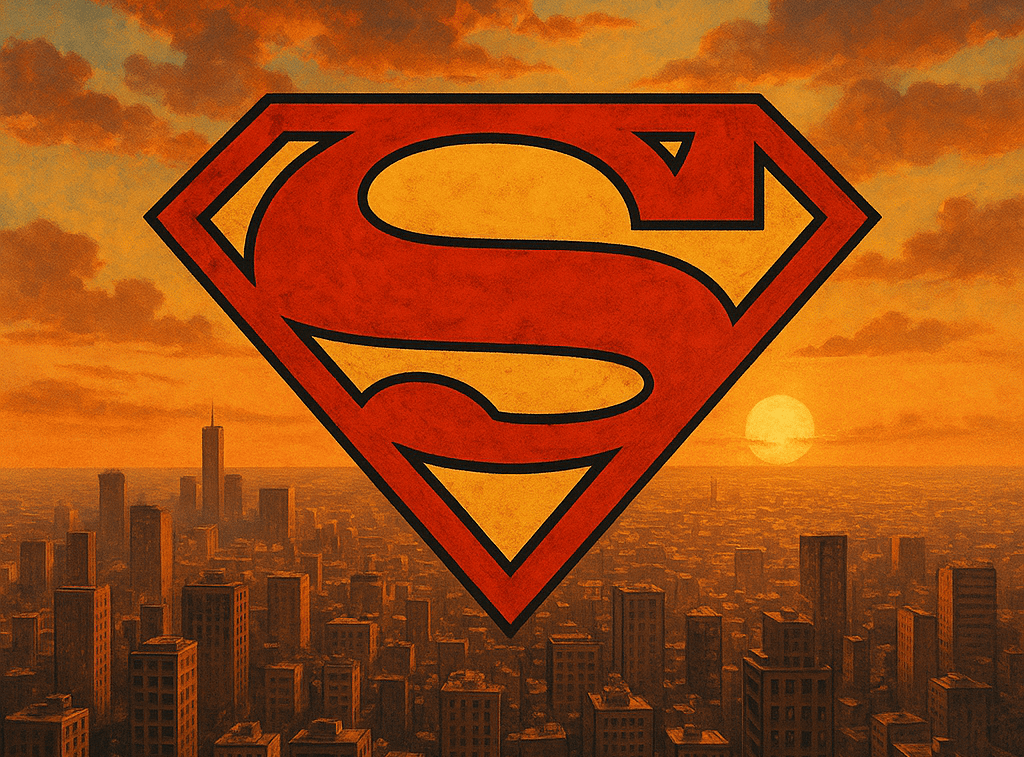Strategizing from 7 cities across the globe
Superman: When a Fictional War Feels All Too Real
Last month, DC's latest Superman movie made its cinematic debut and has quickly gained widespread popularity since. As the first release in James Gunn's new DC cinematic universe, the movie offers an aesthetically spectacular, emotionally resonant, and, very importantly, comic-accurate depiction of the legendary superhero. Its core message is simple: choose kindness. Nevertheless, in spite of this seemingly ubiquitously uncontroversial tone, the movie has generated some debate.
STORYLINEPOLITICSTRENDMOVIES AND ARTS
Jean Paul Kastoun
8/13/20253 min read


Last month, DC's latest Superman movie made its cinematic debut and has quickly gained widespread popularity since. As the first release in James Gunn's new DC cinematic universe, the movie offers an aesthetically spectacular, emotionally resonant, and, very importantly, comic-accurate depiction of the legendary superhero. Its core message is simple: choose kindness. Nevertheless, in spite of this seemingly ubiquitously uncontroversial tone, the movie has generated some debate.
A Story of Hope and War
Without giving away too many spoilers, the movie follows Superman after having stopped the US-backed country of Boravia from invading Jarhanpur. Within James Gunn’s DC cinematic universe, Boravia is violent and takes the lives of many innocent Jarhanpurian citizens. Superman’s success was then undermined by Lex Luthor, an American billionaire businessman genius who is the main financial contributor to Boravia’s genocide/invasion. Luthor initiated the invasion again and went to wild extremes to influence public opinion to stop supporting Superman and stand with the Boravian government, namely their president Vasil Ghurkos.
Interpretation vs. Intention
Audiences around the world responded strongly to this fictional conflict, many of whom made connections between the ongoing Israeli conflict in Gaza and Boravia's invasion of Jarhanpur. Despite this widespread interpretation, the movie makers never directly stated that they intended for the movie to reflect real-world conflicts. In fact, James Gunn himself stated that the script was written before October 8, which is when Israel’s invasion became mainstream. Despite that, many found it hard to overlook the parallel: a strong state supported by the West launches a destructive campaign against a population that is less militarily prepared.
Israeli viewers responded similarly, albeit much more defensively. Articles in the Times of Israel, Jewish Telegraphic Agency (JTA), and Jerusalem Post expressed annoyance about the fact that Superman, a Jewish character who was first conceived by Jewish authors Jerry Siegel and Joe Shuster, was featured in a movie that was seen as being critical of Israel. Despite the film's fictional setting and timeline, some Israelis even claimed that it was "anti-Israel."
In response, the Israeli mainstream media tried to refocus the story. According to some analysts, Boravia's design was more appropriate as a metaphor for the Russian invasion of Ukraine because it was Slavic in aesthetics. Others highlighted director James Gunn's public declaration that the script was written before October 7, before the ongoing conflict in Gaza became a major global concern. Gunn claims that the movie was never meant to be a critique of any particular conflict in the real world. The difference in the audience’s versus the media’s reactions is rather alarming, as why would the people, who usually do not carry as much political bias as the media, have such a different interpretation than their media outlets? Being more akin to that of worldwide audiences’ interpretations. Israeli dissatisfaction with the movie went as far as calling for a boycott of the film. Though the boycott was too small to create much of a dent in the movie’s major performance, the simple fact that they are offended by Superman saving innocent lives from an oppressive invasion speaks volumes for itself. Or maybe I’m looking into it way too much.
The Trend of Constructive Allegory
This dispute also highlights a more general trend in film: the growing importance of the constructivist narrative. Blockbusters are now more than just fantasies for escapists; whether on purpose or not, they serve as platforms for social reflection. A growing desire for stories that even subtly address real-world issues is reflected in the popularity of allegorical storytelling in superhero movies, such as Batman and Black Panther.
Because such characters seem to be missing from our reality, Superman's depiction of a kind, restrained hero facing institutional violence strikes a chord. In addition to being a superhero fantasy, the movie offers a reflection on empathy, power, and accountability, all of which seem particularly pressing during a geopolitical crisis.
Conclusion
In the end, it doesn't matter if Superman was intended to be political commentary. The intense response it provoked, particularly from people who identified with its fictional antagonists, highlights the indisputable ability of art to reflect, relate to, and even expose public opinion. Even though fiction isn't always true, it can occasionally come close enough for us to draw a comparison. Perhaps that's one of the great things storytelling is able to accomplish.
